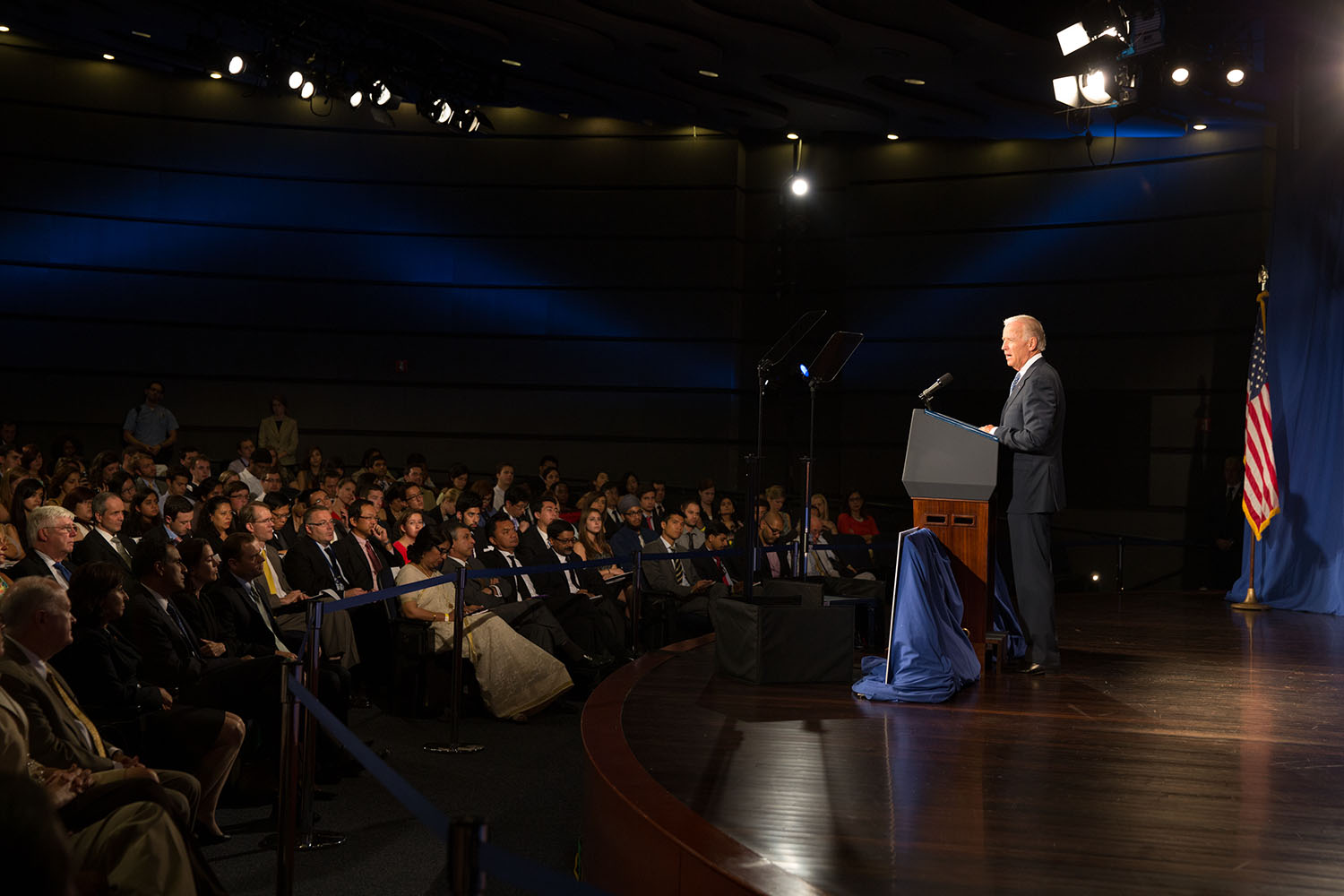
On Thursday, Vice President Joe Biden discussed the Administration’s elevated engagement in the Asia-Pacific region during a speech at George Washington University, sponsored by the Center for American Progress. Citing the potential for strengthened alliances, institutions and partnerships, the Vice President emphasized an “absolute commitment” to the Asia-Pacific region.
“We want to hasten the emergence of an Asian-Pacific order that delivers security and prosperity for all the nations involved. We want to help lead in creating 21st century rules of the road that will benefit not only the United States, and the region, but the world as a whole.”
Vice President Biden called relations with China as “a healthy mix of competition and cooperation,” and urged China to shift to a more consumer-driven economy. He emphasized the importance of institutions like ASEAN in providing stability and security, as well as their role in fighting climate change.
“That’s why we’re working with ASEAN to promote investment in clean energy and why we’re helping Pacific island nations mitigate the effects of rising sea levels. We just concluded an agreement with China to reduce the use of pollutants called HFCs that cause climate change. And there’s no reason we cannot do more with India as well.”
The Vice President also discussed the promise of the Trans-Pacific Partnership, a trade agreement currently being negotiated among countries as diverse as Vietnam, Chile, New Zealand, Mexico, and very soon, Japan – at which point the group will account for 40% of global GDP.
“The TPP has potential to set new standards for collective commitments to fair competition – on state-owned enterprises, fair competition on investments, labor, the environment, open markets for automobiles and other industries. And we firmly believe this will create a strong incentive for other nations to raise their standards so that they can join.”
The Vice President’s remarks precede his travel next week to India and Singapore, as part of the Administration’s continued engagement with the region. For updates from the Vice President's trip, including photos and video, check back on whitehouse.gov and follow @VP on Twitter.



